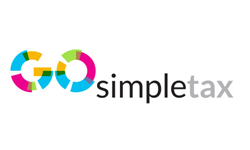
Businesses usually fail because they run out of cash and can't pay their bills when they are due. Although non-payment and late payment remains a big problem for many small UK businesses, another issue that causes serious cash flow is when small businesses live beyond their means.
Letting your spending exceed your income is a dangerous mistake that can soon prove fatal. However, budgeting offers a reliable solution to this issue no matter your size because it enables you to control your spending and costs.
What is budgeting?
Budgeting is something many of us already do in our personal lives. It's no different in business. Budgeting simply means working out how much you can afford to spend, deciding where or how you should spend it and then controlling your spending so that you live within your means. This should help keep your cash flow healthy providing that you make your projected sales and get paid on time (if you grant credit).
Spending too much in one area of your business might seem like a relatively minor thing. But if you do that throughout your business it can create a far bigger cash flow problem. And if you don't set and work within your spending budgets, you may not realise that you're spending too much until it's too late.
 New tax year, new you!
New tax year, new you!
You can file your Self Assessment for the tax year 2023/24 any time from 6 April 2024, don’t leave it until 31 January!
For self-employed individuals, sole traders, or those with non-PAYE income, GoSimpleTax provides direct Self Assessment filing with HMRC, offering helpful hints and savings tips throughout the process. Let GoSimpleTax handle all calculations.
How to set budgets
You need to start by working out your likely monthly income for the year ahead. Your income may fluctuate at different times of the year, which is true for many businesses. Once you have a reliable and realistic idea of how much your sole trader business is likely to bring in, subtract the amount that you need to earn to cover your living costs (don't forget, you'll also pay tax on your income). That will give you an idea of your spending budget, although you may decide to increase or decrease it depending on your business goals and strategy.
Example 1
- If you expect your annual self-employed income to be £36,000 (£3,000 a month), you'll pay about £7,000 in income tax and National Insurance contributions, which leaves you with £29,000.
- If you want/need to earn £24,000, that leaves you with a yearly budget of roughly £5,000 (£420 a month) to operate your business. If that's not enough to run your business, you'll need to increase your business income or settle for lower take-home pay.
Example 2
- If you expect your self-employed income for the year to be £52,000 (£4,300 a month) and need £1,500 a month to run your business (you can claim this as allowable expenses), you'll pay about £7,700 in income tax and £3,600 in National Insurance contributions. This will leave you with £39,000 in take-home pay. (Note that these figures are based on 2023/24 tax rates.)
Setting monthly budgets
Once you know how much you can afford to spend to run your business over the course of a year, you can create monthly budgets for all key cost areas of your business (eg premises, materials, travel, marketing, finance, sub-contractors/freelancers, etc).
You may have to adjust these month by month. For example, if you know you'll be travelling less at certain times of the year or you reduce marketing spend at certain times of year because your business is seasonal. Always seek to allocate budget to areas where it will bring the best results and enable you to meet your business objectives/targets.
Working with your monthly budgets
- You need to realise the importance of budgeting and working with budgets. Budgeting forces you to think carefully about how and where your business spends money. It can help ensure that you don't waste money or put your business at risk by overspending.
- Budgeting also encourages you to gauge the value for money that you are getting for every pound you spend running your business.
- Get into the habit of checking your accounts each month to carefully assess your actual business costs against your monthly budgets in key areas.
- Avoid overspending wherever possible. If you overspend in one area, look for savings elsewhere.
- If you're spending less than planned in one area, consider recommitting funds to other areas where it can have a bigger impact.
- If actual sales are lower than expected, you may need to reduce your monthly budget for the following month(s), so that your sole trader business is not spending at an unsustainable level.
- Once you get to the end of the year, reassess your actual budgets and reduce or increase them where necessary, obviously, remaining within your overall budget for the year ahead.
Setting budgets can be tricky for both variable and (so-called) fixed costs, because, in truth, both can change over the course of a year. If you lack experience, you may be able to improve your budget-setting and budget-management skills, but you should never forget how important budgeting is to successful cash flow control.
If you don't work with budgets, you will have no reliable idea of how much your sole trader business can afford to spend. This can put the very existence of your business at risk - especially in times like these where prices have risen significantly in a very short space of time.
Copyright 2023. Sponsored post by Mike Parkes of GoSimpleTax - tax return software that can help you manage your self assessment.
